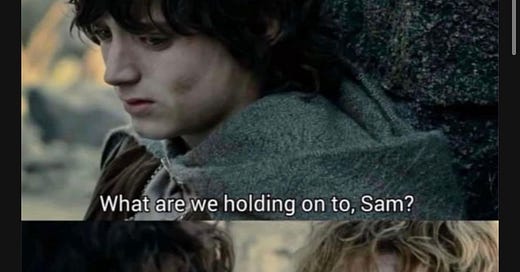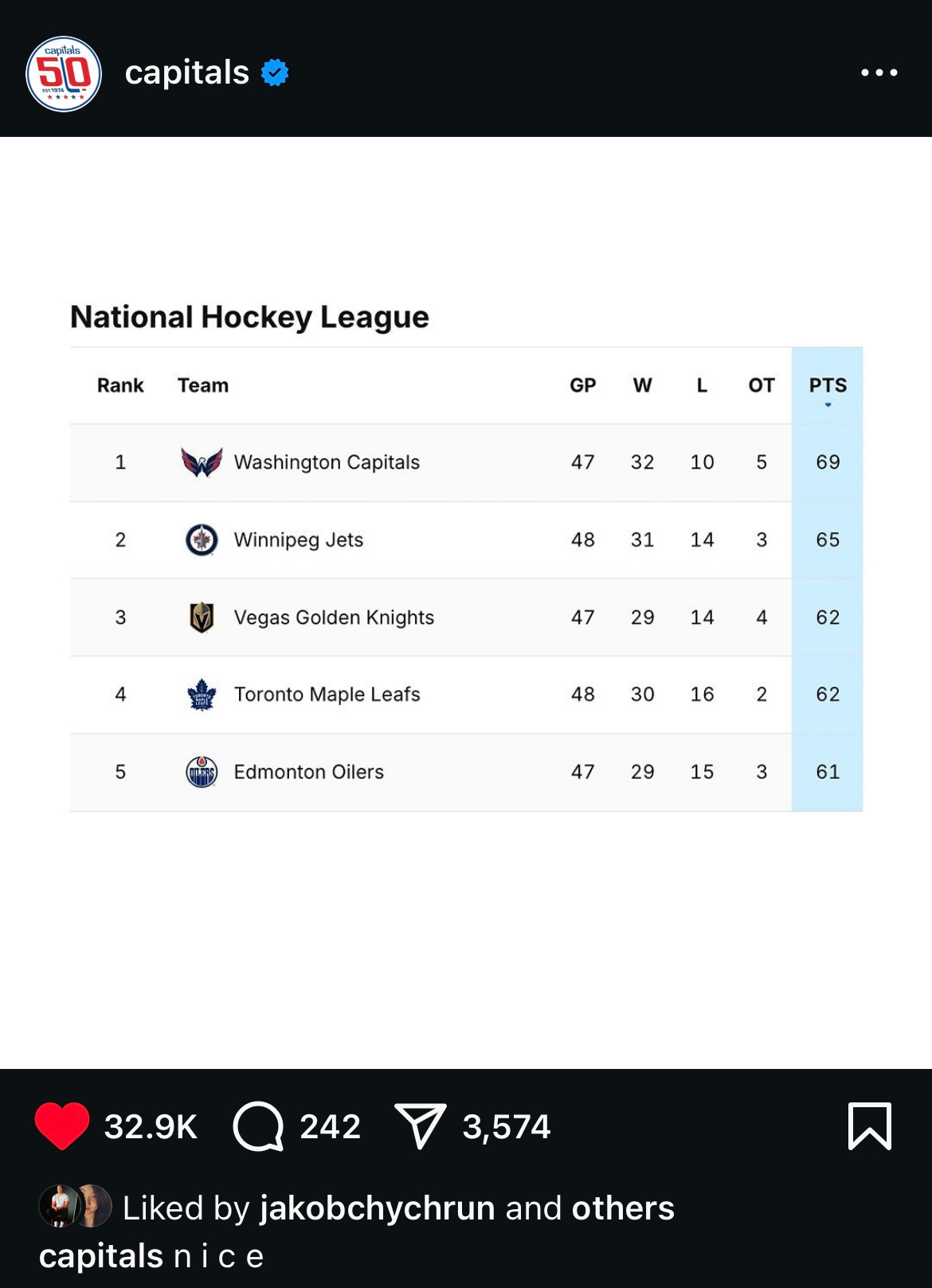warning: post contains moving/flashing gifs
Watching a show as violent and soul-crushing as Squid Game for a little bit of relaxation might seem crazy, but in this new season of The Horrors this Korean show about the inescapable vise of capitalism felt like just the thing. Squid Game, in case you’ve been living under a rock, is the smash Netflix hit from creator Hwang Dong-hyuk, which follows a group of people drowning in debt who agree to participate in a series of children’s games in an attempt transcend their dire circumstances. Protagonist Seong Gi-hun (Lee Jung-jae) won the first season, for a given value of winning, and season two follows his attempts to infiltrate and destroy the games after he finally catches up with The Salesman (Gong Yoo, who is SO hot and SO deranged in this role.)
The second season is absolutely tremendous, in large part because the cast of characters is even more compelling than season one. But in addition to exploring all the reasons a person could get to the point where getting voluntarily kidnapped taken to a remote island would be a reasonable choice, Director Hwang also frames the contestant’s participation as a pretty explicit critique of the limits of democracy in a capitalist system.
In the world of The Game, as it’s called in the show, winnings are accumulated as contestants are “eliminated”—i.e. killed—to the tune of 100 million WON per contestant. In season one, contestants could vote to end the games, but they couldn’t take any of the pot of winnings home. In season two, the rules have changed: if you vote to end the games, contestants can divide up what’s accumulated so far, and at least claw back some of what they owe.
Should be simple, right? Play the game, go home with your money and live. But as contestants die (and die, and die, and kill each other, and die) the choice to continue becomes complicated by greed and hope. “The amount in that pot won’t even cover my interests.” “If I play one more game I’ll be set for life.” Heartbreakingly: “I have more debt than you know about.”
In season one, 201 of the 456 contestants survived the first game. But thanks to Gi-Hun’s efforts in season two, 365 make it out—leaving a much smaller pot to divide among the survivors. After each game—each one more nightmarish than the last, from the now-familiar Red Light Green Light race to the nerve-wracking, nail-biting Mingle—contestants are given a chance to vote whether or not to continue playing. And each time the vote is to continue, even as the contestants face that for the pot to increase, more people must die.
Squid Game is basically watching our society play out in minuature. Over and over again we’ve been given the choice to do something different, and over and over again just enough people have voted to continue the grind. (On the show often the votes come down to just a few contestants.) In the show, at the end of the day, what choice do some of them have but to particicpate in their own exploitation and the exploitation of their fellow contestants, if it means emerging with even a scrap of dignity on the other side? One contestant, Hyun-ju, is a pre-op trans woman, who knows that her options in Korea are vanishingly small, further whittled down by society’s refusal to accept her when she came out. She dreams of gender reassignment surgery in Thailand and a small life there—it’s hard to begrudge her continuing participation in the games, knowing she can’t go back to her old job (the military, sob) and her family doesn’t support her.
I don’t know, man. A lot sucks in the world right now. I didn’t watch this and come out on the other side with helpful takeaways—it didn’t help that this is season two of three, and so most of the Big Questions remain unanswered. (Who is the real Front Man behind the games? How did the guy we know as The Front Man (Lee Byung-hun) get so far in the organization? How on earth is this whole operation funded? Please, Director Hwang, I’m begging you. Give us some answers.)
I guess it felt good to have a metaphor: that big piggy bank is filling itself on the pain of others. In season one, Gi-hun went home with it a broken man, after killing his childhood best friend, only to find his elderly mother dead. When I think about all those billionnaires onstage at the inauguration—over a trillion dollars in accumulated, hoarded wealth—it felt useful to say: Okay. These are the VIPs. We are the contestants. Four more years (derogatory.) Let’s go.
PUBLISHING QUESTION OF THE WEEK
Since you have been on both sides of trad/self publishing now, I would love to hear your insights about the pros and cons of the two tracks, particularly the aspects surrounding launch and publishing- the one area where I feel like trad pub still has an edge, even as I hear growing complaints that publishers are pushing more and more onus onto the authors.
I had an MS that got lot of initial interest from agents when I queried but didn't get picked up- query materials were spot on, MS needed more work. Given this interest, I was fairly confident I could have landed an agent and contract after a major overhaul, but for reasons of age, impatience, and stubbornly DIY tendencies, I self-published late last year. For some of those same reasons, as well as some ignorance and a lot of financial concerns, I forewent the ARC and other pre-launch exercises. I think I regret this because it is CRAZY hard to get noticed after launch. SM is capricious and building an email list is slow, arduous work. Many opportunities for marketing are only available pre-launch, and/or are wildly expensive or intimidating (how exactly does one get a sweet editorial blurb without an intro from agent or editor?). I wonder what isn't really available either financially or logistically as an indie that a trad publisher would have provided (and for how many authors the publishers do the marketing).
As both a writer and artist, producing my own book from cover to completion was a learning curve but well within my skillsets, but the marketing aspect has me wondering if I don't want to try the trad route for my WIP. I know other authors are weighing the same issues.
I feel like I have had this one hanging around for a while — apologies! The pros and cons are kind of complicated, because as we used to say on Shipping & Handling, It Depends.
Traditional publication pros:
paid advances
marketing & publicity support
editorial feedback and guidance
professionals lay out your book and make a professional cover
established sales channels to get your book into brick and mortar stores
higher chances of coverage from mainstream media outlets like the Times, USA Today, etc
access to book boxes/book clubs
does not cost anything for the author
higher prestige of publication
Self publishing pros:
complete control over the process of writing, editing, layout, design, and cover design
higher cut of the per-unit price
no gatekeepers
can be fairly low-cost
For the traditional publishing pros, these are things you’ll get most of the time. Every traditionally published author has a horror story about getting editorial notes late, or geting notes that don’t make sense; every author has a story about getting zero to very little marketing & publicity support for their book. (Advances and royalties aren’t what they used to be, either.) That being said, the sales channels to get your book into physical bookstores are there for trad pub authors in a way they aren’t for self-pub authors, and the fact that an author can go from querying to book publication without shelling out a single cent is pretty attractive! Additionally, when things go right for a book—when editor and author are in alignment, when the marketing and publishing teams are cracking a long—it can be a fun, rewarding experiences. Call me Pollyanna but I think this happens more often than not.
As someone who has self-published a novel, I can tell you that the work to promote it did not, ultimately, feel like something I wanted to do. I made one tiktok; I posted on Instagram a handful of times. My writing is a creative pursuit, but especially after rejoining the industry, it’s not my main focus, and successful indie authors are constantly grinding to promote themselves in an absolute tidal wade of independently published content. (And that was even before the wave of AI slop began to flood KU.) If you are a person who is confident and excited to talk about your own work a lot, then the self-publishing route will be a good one for you. I found the idea of talking about my own work on social media personally excruciating.
That being said, you have to talk a lot about your work as a trad pub author, too! These days authors are expected to talk about their books as much as possible—online, in blog posts, in your hometown paper, with your local indies and book clubs and reading groups. Gone are the days of a massive newspaper campaign for a debut writer, and with a TikTok final death on the horizon, the window of booktok promo may be closing, too.
When I self-pubbed, I didn’t do an ARC or a launch or any of the other things you’ve talked about. I think I’ve sold somewhere around 350 copies, which isn’t anything to sneeze at—it’s not gonna get me quitting my day job, either.
WHAT I’M READING
Well, I said I didn’t want to do a lot of rereading, but I also said I had received those beautiful Dorothy L. Sayers editions, so I’ve just finished Whose Body? and Murder Must Advertise. Murder Must Advertise is one-half perfect comedic mystery and one-half bizarre drug-fueled fever dream, so of course it was enjoyable. Once I finished those the shame came upon me, so I picked up a book I’d purchased last year but hadn’t read (many such cases:) Ruby Dixon’s Bull Moon Rising. I’m about a hundred and fifty pages in and it’s tremendous fun so far.
THIS WEEK IN HOCKEY
The Washington Capitals lead the league in points, with 69. The closest teams in the standings are the Jets with 67 and the Leafs with 62. The Caps’ success is largely built on Pierre-Luc Dubois’ scoring prowess and the two crackerjack goaltenders we inexplicably have, so valued that the club is waiting to sign new contracts for both because they don’t want to upset the locker room. Elsewhere, a Ranger has a maple syrup company, and I think that’s very sweet. (heh).
HOUSEKEEPING
Do you have any questions about the publishing industry? Requests for advice? Thoughts on your recent reads? You can leave them as comments, replies to this email, or fill out this Google form to ask anonymously!
For my sins, I have reopened to queries.
My first novel, Marrying In, is available for purchase on Kindle, Nook, and Kobo, and is coming soon to iBooks. If you’ve read it, consider leaving a review—that helps me and the book in the long run!
You can find me on social media on Bluesky, Twitter, Instagram, the A Faster No Discord, and now TikTok. If you buy any of the books linked in this newsletter I receive a small commission at no cost to you.
This newsletter is a personal project, and the sentiments and opinions expressed here are my own and not those of my employer.





